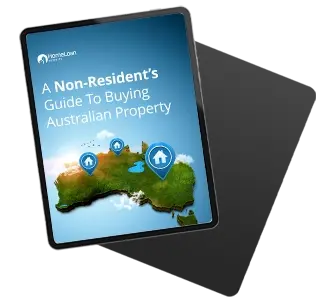The Foreign Investment Review Board (FIRB) was created to examine proposed investments that are subject to the Foreign Acquisitions and Takeover Act 1975 and advise the Treasurer and the Government Australia’s foreign policies. If you are a foreigner, you will be required to get FIRB approval if you want to purchase most properties here. However, there are some properties, like areas within the Integrated Tourism Resorts (ITR), that do not require FIRB approval to buy.
FIRB Exemptions: Can You Get It?
FIRB approval is not required if you are an Australian or you fall under any of the following categories:
- You are a permanent resident of Australia
- You are a New Zealander purchasing a residential property
- You are purchasing property with your spouse, as joint tenants, and your spouse is a citizen of Australia or New Zealand or an Australian permanent resident.
- You are purchasing a new property from a developer who holds a new dwelling exemption certificate.
- You are purchasing a residential property that is in a designated ITR.
Buying A Home in Australia As A Non-Resident
Everything you need to know as a non-resident buying a property in Australia.

Disclaimer: Over the next few days, you’ll receive additional guides to help you on your homebuying journey. Occasionally, you’ll receive carefully curated home-buying tips, offers & schemes, and news articles. You can unsubscribe any time you want. View our Privacy Policy
FIRB Exemption For Integrated Tourism Resorts
Foreign investors who want to purchase vacant residential land, a residential dwelling, or an established dwelling within a resort that was designated an Integrated Tourism Resort (ITR) before September 1999 do not need to apply for FIRB approval.
An ITR usually consists of a mix of accommodation, recreation and commercial facilities that have been planned and constructed by a single developer on a single or adjoining site within a well-defined area. These exemptions apply only to residential land located within the originally designated boundaries of an ITR. Foreigners are still subject to the additional foreign acquirer duty, which is a surcharge on top of any transfer duty.
The following resorts were designated ITRs before September 1999:
- Hamilton Island Resort, Whitsunday Passage, Queensland
- Hope Island Resort, Hope Island, Queensland
- Hyatt Regency Resort, Coolum, Queensland
- Kooralbyn Valley Resort, Queensland
- Laguna Quays Resort – Stage 1, Repulse Bay, Queensland
- Mirage Port Douglas Resort, Port Douglas, Queensland
- Palm Cove Travelodge Resort, Queensland
- Royal Pines Resort, Ashmore, Queensland
- Sanctuary Cove, Hope Island, Queensland
- Joondalup Resort, Western Australia
- Wirrina Cove Resort, South Australia
For resorts classified as ITRs on or after September 1999, foreign individuals are not required to obtain foreign investment approval for purchases of developed residential property within the resort that is all of the following:
- Subject to a lease of a minimum of 10 years to the resort operator.
- Available as tourist accommodation when the owner is not living in it.
- Acquired in a manner following the conditions imposed on the ITR at that time.
The following resorts were designated ITRs on or after September 1999:
- Heritage Golf and Country Club, Chirnside Park, Victoria
- Hunter Valley Golf and Country Club Resort, New South Wales
- Kingfisher Bay Resort Village, Fraser Island, Queensland
In 2015, the act was amended and no longer includes a means to approve new integrated developments as ITRs. Current ITRs will be considered to prevent negative effects on existing foreign investors.
Source: FIRB Guidance Note 06 – Residential Land
FIRB Exemption Certificates Through Property Developers
Foreign investors are also not required to go through the FIRB process if the developer of their property has obtained an exemption certificate. There of two types of exemption certificates that developers can apply for:
- New Dwelling Exemption Certificate
- Near-New Dwelling Exemption Certificate
A New (or Near-New) Dwelling Exemption Certificate will generally provide approval only for a foreign person to make a purchase of up to $3 million in a single development. The foreign person will have to get FIRB approval on their own if they want to buy a property valued at more than $3 million. In the case of exemption certificates, the property developer, not the foreign buyer, pays an initial application fee of $56,000 and reconciliation fees every six months. The table below shows the types of exemption certificates and how they are treated.
| Type Of Exemption Certificate | Fee Treatment |
|---|---|
| Residential land (established dwellings) Residential land (other than an established dwelling) | Ordinary fee for acquiring an interest in residential land |
| Residential land (new dwellings) Residential land (near-new dwellings) | Application fee of $56,600 plus reconciliation fee every six months, which is based on the number of dwellings acquired by foreign people |
Source: FIRB Guidance Note 10 – Fees on foreign investment applications
Before proceeding with any contract, you should seek legal advice specific to your circumstances to ensure you do not fall foul of legislation. Failure to do so may result in huge penalties. Speak to your conveyancer, as each situation can be unique and conditions may be attached.
We Can Help With Your Home Loan!
Foreign investors can save time and money by looking at the ITRs or at properties with exemption certificates. Looking for home loans to finance your investment? We have mortgage brokers who specialise in helping foreigners in Australia and Australians living abroad get a home loan.
Call us on 1300 889 743 or +61 2 9194 1700 or fill in our free online assessment form, and we will contact you.
